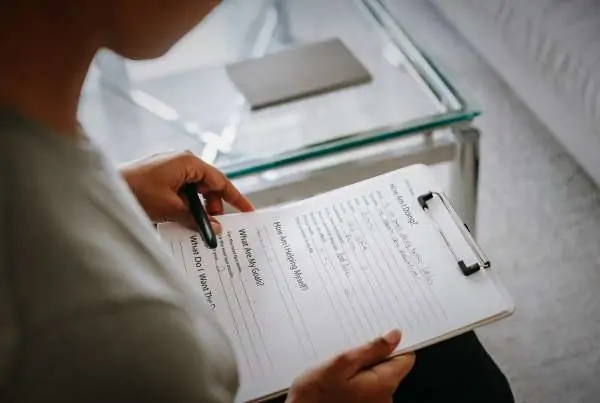For most teens, the transition from high school to college is an immensely stressful one. There are many new freedoms, opportunities, and exciting futures to explore – but they come with greater responsibilities and expectations, new environments, and plenty of unfamiliar faces. College days can be fun, but they can be punctuated by overwhelming course loads, frustrating schedules, and sleepless nights. Throughout all of this, it’s important to learn how to manage your mental health in college. A few simple habits and a couple of rules can go a long way.
You Don’t Need to Drink
A few myths surround the typical college lifestyle – but the ubiquity of alcohol isn’t one of them. The pandemic aside, statistics on college drinking show that most students consume alcohol regularly, with as many as a third engaging in binge drinking at least once a month. But you don’t need to drink with the others to fit in. There’s nothing wrong with learning your limits.
Still, if you have a history of alcohol use, a family history of alcoholism, or are currently struggling with the stresses of college life, it would be best for both your mental and physical health to stay sober. Not only does frequent binge drinking do major damage to your organs, but it also affects brain development and cognition. In addition, it can lead to co-occurring substance use issues in teens struggling with a diagnosed mental health issue, such as depression, anxiety, or untreated ADHD.
Watch Your Coping Styles
College can be stressful, and teens need to find their own ways to cope with that. Late nights, tough deadlines, expectant professors, and the social stress of a new and strange environment means finding outlets for all that pressure. Some coping mechanisms are healthier than others. Some are downright harmful.
Consider how your coping mechanisms are affecting you in the long term, as well as those around you. The habits you build in college can end up shaping a better part of your life, including the way you deal with stress. If you’re at a loss for positive coping mechanisms, consider giving the following a try:
-
- Setting a weekly budget.
- Cleaning an area of your room.
- Owning and caring for a little plant.
- Watching some standup or comedies.
- Picking up a new skill during downtime.
- Setting a simple sleep ritual to fall asleep quickly.
- Making time for your hobbies and personal pursuits.
- Setting consistent mealtimes and avoiding snacking.
Keep Track of How You’re Feeling
Journaling can be a helpful way for you to keep track of how you’re feeling over a period and bring along a written log of your ups and downs, should you need a record for a professional diagnosis. But the act of writing alone can help provide a great deal of catharsis for many teens struggling to verbalize otherwise or process their emotions.
It’s also a way to monitor your symptoms and discuss them with a therapist. You can use journaling not just to take note when you’ve had a terrible day but to work through exactly what it is that made it so bad. For example, oftentimes, you might realize that you didn’t have as much reason to be upset as you were – or you might feel a little better that you had some way to express your frustrations and vent a little without involving someone else.
Seek Out Local Mental Health Resources
While college is an important time to work on independence and self-reliance, we aren’t meant to go through life without help and support along the way. Take the time to familiarize yourself with the mental health resources available to you, from counseling to referred therapists. Learn about your school’s policies for disabilities due to mental health, medical leave, accommodations for students with certain difficulties, and the level of confidentiality guaranteed to students.
Get an Exercising Buddy
Physical health is important for mental health, and there are distinct therapeutic benefits to regular exercise. But it can be especially hard for someone with mental health issues to stay consistent with their physical health. One way to overcome this problem is by finding someone to work out with, either in person or virtually.
You can push one another to take the time to get moving a few times a week and keep track of one another. Unfortunately, it can get too much to try and motivate yourself to stay committed to an exercise plan while struggling with the stress. Still, you’ll find that even just half an hour a day spent getting active can help you study and retain information, avoid procrastination, and cope better.
Keep Your Days Structured
Downtime can be especially difficult, as can a loose schedule. Sometimes, just having a reason to get up in the morning can make the difference between an awful day and a decent start. Create a schedule around your course load and interests, make room for rest and recreation, and structure your daily obligations.
Utilize Your Privileges
Depending on the severity of your symptoms, you may be entitled to certain accommodations and special education services under your school’s mental health program, especially for community colleges managing mandated Individuals with Disabilities Education Act (IDEA) programs.
If you have made use of such programs during high school, you can bring any relevant paperwork over during the transition period to discuss your options in college with the administrators responsible for your accommodations. But, again, try to identify your core needs, gather the reports and doctor’s notes you might need to explain your condition, as well as how you’ve managed it in the past, and how it can affect your studies.
Consider a Medical Leave
If necessary, you might want to consider temporarily requesting a leave of absence during your semester to seek medical help for managing mental health in college, particularly if things have gotten worse during college or if you have developed different symptoms during your time on campus. Different schools have different policies and protocols for medical leave due to mental health issues and different levels of financial aid (i.e., refunded fees, grace periods, etc.).
Be sure to discuss these with your school and therapist. Many students are currently completing their courses from home while the pandemic is ongoing. College life these days has its own completely different set of challenges and problems, especially with the social isolation and deaths caused by COVID. It’s important to prioritize your mental health in college and seek help. Consider teletherapy counseling or an appropriate outpatient program.









